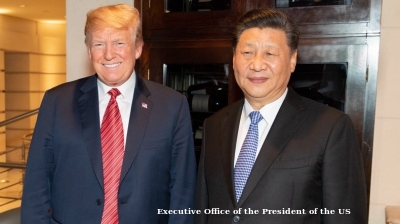Former PrivatBank owner and oligarch Ihor Kolomoisky along with five associates has been charged with embezzling UAH9.2bn ($250mn) from Ukraine’s biggest commercial PrivatBank, kicking off what will be Ukraine’s biggest ever corruption case.
The charges were brought by the National Anti-Corruption Bureau of Ukraine (NABU) on September 7 and allege that Kolomoisky established a scheme in early 2015 to transfer funds from PrivatBank to his offshore companies and increase his own share in the bank's capital.
In the wake of the bank’s subsequent collapse in 2016, National Bank of Ukraine (NBU) hired corporate sleuths Kroll to conduct a forensic audit, which reported “large-scale corruption” and that much of the money was siphoned out via shell companies in the UK and Cyprus. At least half a billion dollars of that money ended up in Cleveland in the US, where Kolomoisky is also being investigated for money laundering.
Despite his obvious culpability, no criminal charges were brought against Kolomoisky in Ukraine, who continued to operate in Ukraine with seeming impunity.
However, the management of the now state-owned PrivatBank has launched a series of civil cases against Kolomoisky in London, Cyprus and elsewhere, in an effort to recover what the management call the “fraud loans”. The cases are wending their way through the courts, but a London judge has frozen $2bn worth of Kolomoisky’s assets while the UK case proceeds.
Founded by Kolomoisky, PrivatBank was the biggest and most successful bank in the country. However, the bank collapsed and was nationalised after a bne IntelliNews cover story “Privat Investigations” published in November 2016 showed that its loan book was riddled with fake loans. A scandal and an NBU investigation later, the bank was nationalised in December after the regulator determined that over 90% of the bank’s loans were fake and there was a $5.5bn hole in its balance sheet.
The bank was put under state control and received a bailout that remains not only the biggest in Ukraine’s history, but one of the biggest in all of the Former Soviet Union (FSU). bne IntelliNews included the looting of PrivatBank as one of its list of greatest scams in the post-Soviet space since 1991.
Question marks were raised over Ukrainian President Volodymyr Zelenskiy’s relationship with Kolomoisky following his election in April 2019, as the former comedian sold many of his productions to Kolomoisky’s media network, which in turn is credited with helping Zelenskiy win the election thanks to its enthusiastic support of his campaign. After Zelenskiy took office, Kolomoisky returned from self-imposed exile in Israel and launched what the NBU senior management dubbed a campaign of terror to recover control of PrivatBank.
Under pressure to reign in the oligarchs by both the International Monetary Fund (IMF) and Ukraine’s Western partners, Zelenskiy finally launched a crackdown on the oligarchs, starting with his oligarch speech in March 2021 and followed by an oligarch law in September the same year. He also headed off Kolomoisky’s campaign to recover PrivatBank with the so-called anti-Kolomoisky law in May 2020 that made it impossible for the former owner of the currently nationalised bank to retake control of it.
After years of ignoring the looting of PrivatBank by Kolomoisky, NABU is now bringing specific charges against him in the case. The NABU investigation revealed that the bank was obliged to pay over $250mn to an offshore company, ostensibly for repurchasing its own bonds at an inflated cost. Subsequently, approximately $12mn of these funds were transferred to five legal entities, purportedly for facilitating the purchase, but eventually ended up in Kolomoisky's personal account, NABU said.
Among the six suspects implicated in the scheme are PrivatBank's former chairman of the board and other senior ex-officials.
The new PrivatBank charges are a significant scaling up of charges already brought against Kolomoisky last weekend, when he was arrested by the Ukrainian Security Service (SBU) on suspicion of money laundering and fraud for manipulating $14mn of funds in his oil and gas holdings, which were also nationalised last November. Kolomoisky was arraigned the same day but refused to post the $14mn bail set by the judge, and was placed in pre-trial detention.
If Kolomoisky is put on trial for wrongdoing at PrivatBank, it would be a landmark case in Zelenskiy’s campaign to crack down on corruption and for the country as a whole. Previously NABU has attempted to charge and prosecute very senior officials only to see its efforts melt away thanks to the venal state of Ukraine’s judicial system.
In March 2017, NABU arrested its first ever big fish in what became a litmus test for Ukraine’s anti-corruption efforts. NABU arrested Roman Nasirov, the head of the State Fiscal Service of Ukraine and President Petro Poroshenko's right-hand man, on embezzlement charges and attempted to have him prosecuted.
However, the case fell apart. His wife immediately posted his bail of over a million dollars in cash and several Rada deputies appeared at the courthouse to lobby for his release. The investigation was declared closed by July that year and not only did Nasirov never have to stand trial, he ran for president in the 2019 elections won by Zelenskiy.
NABU’s director Artem Sytnyk told bne IntelliNews in an exclusive interview in 2018 that he was increasingly frustrated by the government’s more and more blatant efforts to block his agency's work. He also slated Poroshenko’s failure to clean up the judicial system where a quarter of the judges were known to be corrupt.
The fact that a senior Ukrainian oligarch has been arrested and is now sitting in a jail cell is a first. If Kolomoisky actually stands trial for his crimes, that would be a landmark moment. If he is convicted and sent to prison that would be a revolution.
In the three decades since the fall of the Soviet Union, only one senior oligarch has ever been arrested, convicted and jailed: Russia’s former Yukos owner Mikhail Khodorkovsky, who served ten years on tax fraud charges, after he tried to defy Russian President Vladimir Putin in the noughties. The difference with the Kolomoisky case is he could be jailed for actually breaking the law.
News

Trump Administration striving to strike critical minerals deal with Kazakhstan
Pushing for US firm to win rights to develop major tungsten deposits.

Trump and Xi to meet in Busan, South Korea
The meeting comes after weeks of uncertainty over whether the encounter would take place. A trade dispute flared earlier this month when Beijing expanded export curbs on rare‐earth minerals, prompting the US to threaten additional tariffs.

Russia will remain defiant against US sanctions pressure, Putin claims
The sanctions come at a time when Russia’s two largest energy buyers, China and India, have shown signs of reducing their oil imports from Russia.





